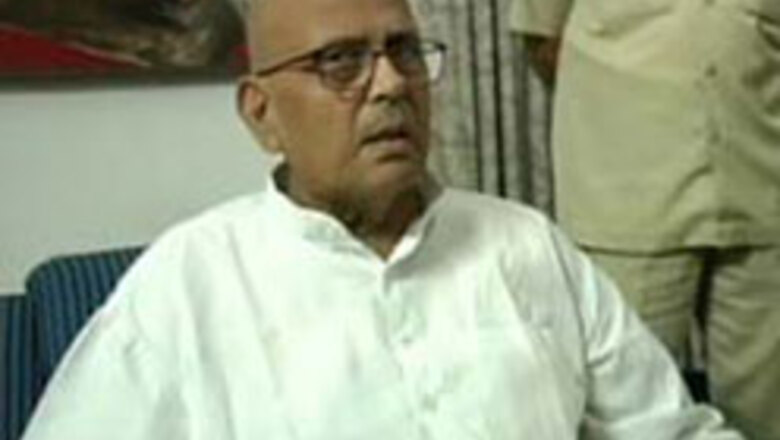
views
New Delhi: Former prime minister V.P. Singh, who launched a bold initiative in social engineering while heading the country's first coalition government during 1989-90, died here after battling kidney ailment for several years. He was 77.
Singh, who breathed his last at the Indraprastha Hospital at 1425 hrs, was suffering from multiple myeloma and chronic renal failure for a long time, hospital sources told IANS.
He had been undergoing treatment at the Apollo Hospitals, Mayo Clinic in the US and the Bombay Hospital for over 12 years, they said.
An anti-corruption crusader, Singh was seen by many as a messiah of social justice who opened up opportunities for the lower and lower middle class strata of society, and was reviled by others for sharpening caste cleavages in Indian society with his 'Mandal politics'.
Singh served as finance minister and defence minister in the Rajiv Gandhi government before he turned against him and resigned over the issue of alleged payoff in the purchase of Bofors guns. He campaigned on the issue of corruption and probity in public life.
In 1989, beating the Congress which had come to power in the 1984 elections with two-thirds majority, Singh formed the National Front government and ruled the country from December 2, 1989 to November 10, 1990, when some of the coalition partners turned against him.
In those days, Singh was being called "Mr. Cleaner" to Gandhi's much-touted "Mr. Clean" image.
In August 1990, Singh decided to implement the recommendations of the Mandal Commission that reserved 27 per cent of the jobs in central government for the Other Backward Classes (OBCs) who comprised 52 percent of the Indian population.
It was a move that elicited a backlash from the urban, high-caste youth who saw job quota as a challenge to their educational and career prospects and which radically re-altered political equations in the country.
His prime ministerial tenure is mostly remembered for his policy of extending reservations to OBCs, tussle with powerful corporate interests and his decision to arrest then Bharatiya Janata party (BJP) president L.K. Advani, which turned out to be his nemesis.
Born on June 25, 1931, in Allahabad, Singh is one of few Indian politicians whose reputation for integrity has survived the pressures of partisan politics.
In his later years, he came out in support of a number of grassroots movements, especially those championing the cause of the farmers affected by land acquisition for industry. he participated in a number of mass protests in spite of his failing health.
Prime Minister Manmohan Singh expressed grief at the death of Singh.
In his condolence message, the prime minister said he was "deeply saddened to learn about his demise".
"In his death India has lost a great patriot and a builder of our nation whose empathy for the weaker sections would always be etched in our national consciousness.
"As chief minister of Uttar Pradesh and later as finance minister and prime minister of India he consistently strove to translate his convictions into public policy. Even after being afflicted with a debilitating disease, he continued to be at the forefront of the struggle for social justice.
"A grateful nation would always cherish the memory of this great son of India," he said.
Lok Sabha Speaker Somnath Chatterjee said, "V.P. Singh was one of the architects of social engineering in India."
Railway Minister Lalu Prasad, who was part of the government headed by Singh, said, "V.P. Singh was a truly secular nationalist who was committed to people's welfare and national development. Throughout his life he strove for the betterment of poorest among poor people especially those who belong to the deprived section of the society and minorities."
Communist Party of India-Marxist general secretary Prakash Karat said he was "deeply saddened" at his death. He said he was "one of the few contemporary political leaders who stood for principled politics.
"His was a voice for the downtrodden people and he led many struggles for their cause. His bold stand in implementation of the Mandal Commission recommendations was such an example. He had to give up his prime ministership because of his firm stand in defence of secularism.
"The country has lost a leader of rare distinction and commitment," Karat said in a statement issued here.
Calling him a "harbinger of social engineering", senior BJP leader Mukhtar Abbas Naqvi said, "The work done by him for the poor and the backwards is a major contribution to Indian society."



















Comments
0 comment